-
 Bitcoin
Bitcoin $81,801.3998
-4.88% -
 Ethereum
Ethereum $1,783.4899
-5.99% -
 Tether USDt
Tether USDt $0.9995
0.00% -
 XRP
XRP $2.0414
-4.17% -
 BNB
BNB $587.6986
-2.45% -
 USDC
USDC $0.9999
0.03% -
 Solana
Solana $115.2385
-10.95% -
 Dogecoin
Dogecoin $0.1582
-8.40% -
 Cardano
Cardano $0.6402
-6.21% -
 TRON
TRON $0.2358
-0.95% -
 Toncoin
Toncoin $3.5762
-9.76% -
 UNUS SED LEO
UNUS SED LEO $9.3946
-0.30% -
 Chainlink
Chainlink $12.6270
-8.73% -
 Stellar
Stellar $0.2571
-4.44% -
 Avalanche
Avalanche $17.9106
-6.91% -
 Sui
Sui $2.2118
-10.25% -
 Shiba Inu
Shiba Inu $0.0...01214
-3.68% -
 Hedera
Hedera $0.1605
-7.04% -
 Polkadot
Polkadot $4.0102
-2.57% -
 Litecoin
Litecoin $82.1077
-4.40% -
 MANTRA
MANTRA $6.3939
-0.80% -
 Bitcoin Cash
Bitcoin Cash $293.5150
-4.57% -
 Dai
Dai $0.9998
0.02% -
 Bitget Token
Bitget Token $4.4590
-2.70% -
 Ethena USDe
Ethena USDe $0.9994
-0.05% -
 Pi
Pi $0.5769
-14.95% -
 Monero
Monero $209.6337
-5.00% -
 Hyperliquid
Hyperliquid $11.4631
-15.12% -
 Uniswap
Uniswap $5.7471
-7.46% -
 Aptos
Aptos $4.9953
-6.98%
How do smart contracts in the NFT secondary market work?
Smart contracts automate NFT transactions on secondary markets, ensuring transparency, efficiency, and rule enforcement, but face challenges like code complexity and scalability.
Apr 03, 2025 at 07:14 am
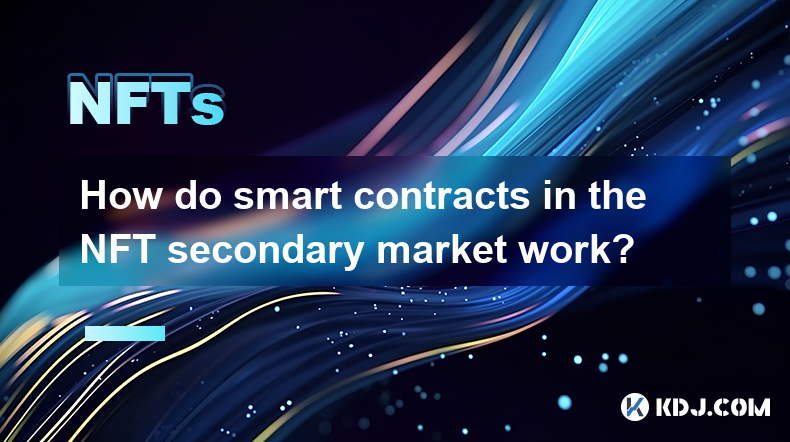
Smart contracts play a pivotal role in the NFT secondary market, facilitating seamless transactions and enforcing predefined rules. These self-executing contracts with the terms of the agreement directly written into code are stored on the blockchain. In the context of NFTs, smart contracts automate the buying, selling, and transferring of digital assets. When a user wants to purchase an NFT listed on a secondary market, the smart contract ensures that the transaction adheres to the set conditions, such as price and ownership transfer. This automation reduces the need for intermediaries, thereby increasing efficiency and reducing costs.
The process begins when an NFT owner decides to list their asset for sale on a secondary market platform. The owner sets the price and other conditions through the platform's interface, which then interacts with the smart contract. The smart contract, upon receiving this information, creates a listing on the blockchain. When a buyer expresses interest in purchasing the NFT, they initiate a transaction through the platform. The smart contract verifies that the buyer has the necessary funds and that the seller's conditions are met. If everything checks out, the smart contract automatically executes the transfer of the NFT to the buyer's wallet and sends the payment to the seller's wallet.
Key Components of Smart Contracts in NFT Secondary Markets
Smart contracts in the NFT secondary market consist of several key components that ensure their functionality and security. The first component is the code itself, which outlines the rules and conditions of the transaction. This code is immutable once deployed on the blockchain, ensuring that the terms cannot be altered after the fact. The second component is the state variables, which store data such as the current owner of the NFT, the price, and any royalties. These variables are updated automatically by the smart contract as transactions occur.
The third component is the functions that define the actions the smart contract can perform, such as transferring ownership, updating prices, and handling payments. These functions are triggered by user interactions with the platform. The fourth component is the events, which are logs of significant actions taken by the smart contract, such as a sale or a transfer. These events are crucial for transparency and can be used by off-chain applications to track the history of an NFT.
Benefits of Using Smart Contracts in NFT Secondary Markets
The use of smart contracts in the NFT secondary market offers several benefits. First, they provide transparency. Every transaction is recorded on the blockchain, making it easy to verify the history and authenticity of an NFT. This transparency reduces the risk of fraud and increases trust among buyers and sellers. Second, smart contracts enable automation, which speeds up the transaction process and reduces the need for intermediaries. This automation leads to lower fees and faster settlement times.
Third, smart contracts ensure enforcement of rules. Once the conditions are set in the code, they are automatically enforced, eliminating the possibility of disputes over terms. This feature is particularly beneficial in the NFT market, where disputes over ownership and royalties can be common. Fourth, smart contracts offer global accessibility. Since they operate on the blockchain, anyone with an internet connection can participate in the NFT secondary market, regardless of their location.
Challenges and Considerations
Despite their benefits, smart contracts in the NFT secondary market face several challenges. One major challenge is the complexity of the code. Writing secure and efficient smart contracts requires a high level of technical expertise. Errors in the code can lead to vulnerabilities that hackers can exploit, resulting in loss of funds or unauthorized transfers of NFTs. Another challenge is scalability. As the number of transactions on the blockchain increases, so does the demand on the network, which can lead to slower transaction times and higher fees.
Regulatory uncertainty is also a significant consideration. The legal status of NFTs and smart contracts varies by jurisdiction, and there is a lack of clear guidelines on how they should be treated. This uncertainty can deter some potential users from participating in the NFT secondary market. Lastly, the user experience can be a barrier. Interacting with smart contracts often requires users to manage their own wallets and understand the basics of blockchain technology, which can be daunting for newcomers.
Examples of Smart Contracts in Action
To illustrate how smart contracts function in the NFT secondary market, consider the example of a popular NFT marketplace like OpenSea. When a user lists an NFT for sale on OpenSea, they interact with the platform's user interface, which then communicates with the smart contract on the Ethereum blockchain. The smart contract records the listing, including the price and any additional conditions set by the seller. When a buyer decides to purchase the NFT, they send the required funds to the smart contract, which then verifies the transaction details and executes the transfer of the NFT to the buyer's wallet.
Another example is the use of smart contracts for royalty payments. Many NFT creators set up smart contracts to automatically pay them a percentage of the sale price whenever their NFT is resold on the secondary market. For instance, if an NFT is sold for 1 ETH and the creator has set a 10% royalty, the smart contract will automatically send 0.1 ETH to the creator's wallet upon the completion of the sale. This feature ensures that creators continue to benefit from the ongoing value of their work.
Future Developments and Innovations
The future of smart contracts in the NFT secondary market looks promising, with ongoing developments and innovations aimed at addressing current challenges. One area of focus is improving the user experience. Developers are working on creating more user-friendly interfaces and tools that simplify the process of interacting with smart contracts. This includes better wallet management solutions and more intuitive platforms that guide users through the buying and selling process.
Another area of innovation is enhancing security. Researchers and developers are exploring new techniques to make smart contracts more resistant to hacking and vulnerabilities. This includes the use of formal verification methods to mathematically prove the correctness of smart contract code before deployment. Additionally, there is a growing interest in layer 2 solutions, which aim to improve the scalability of blockchain networks by processing transactions off the main chain, thereby reducing congestion and fees.
Finally, the integration of artificial intelligence with smart contracts is an exciting frontier. AI could be used to optimize pricing strategies for NFTs, predict market trends, and even automate the creation of new smart contracts based on user preferences. These advancements could significantly enhance the efficiency and effectiveness of the NFT secondary market, making it more accessible and appealing to a broader audience.
Common Questions and Answers
Q1: How does a smart contract ensure the security of an NFT transaction?
A1: Smart contracts ensure the security of NFT transactions through their immutable code, which cannot be altered once deployed on the blockchain. Additionally, they use cryptographic techniques to verify the identity of the parties involved and ensure that funds are transferred only if all conditions are met. The transparency of the blockchain also helps in tracking and verifying transactions, reducing the risk of fraud.
Q2: Can smart contracts handle royalty payments for NFT creators?
A2: Yes, smart contracts can handle royalty payments for NFT creators. They can be programmed to automatically send a percentage of the sale price to the creator's wallet whenever their NFT is resold on the secondary market. This ensures that creators continue to benefit from the ongoing value of their work.
Q3: What are the main challenges faced by smart contracts in the NFT secondary market?
A3: The main challenges include the complexity of the code, which can lead to vulnerabilities; scalability issues due to high demand on the blockchain; regulatory uncertainty; and user experience barriers. These challenges are being addressed through ongoing research and development efforts.
Q4: How can the user experience be improved for interacting with smart contracts in the NFT market?
A4: The user experience can be improved by developing more user-friendly interfaces and tools that simplify the process of interacting with smart contracts. This includes better wallet management solutions, more intuitive platforms, and educational resources to help users understand blockchain technology.
Q5: What future innovations are expected in smart contracts for the NFT secondary market?
A5: Future innovations include improvements in user experience, enhanced security through formal verification methods, the use of layer 2 solutions for better scalability, and the integration of artificial intelligence to optimize pricing and automate smart contract creation. These advancements aim to make the NFT secondary market more efficient and accessible.
Disclaimer:info@kdj.com
The information provided is not trading advice. kdj.com does not assume any responsibility for any investments made based on the information provided in this article. Cryptocurrencies are highly volatile and it is highly recommended that you invest with caution after thorough research!
If you believe that the content used on this website infringes your copyright, please contact us immediately (info@kdj.com) and we will delete it promptly.
- title: Bitcoin (BTC) Staring Primed to Move a Leg Up as Technical Indicators Remain Bullish: Analyst
- 2025-04-04 04:25:11
- The Truth Behind Crypto Presales – A Good Investment To Turn $300 Into Millions?
- 2025-04-04 04:25:11
- SUI Signals Bullish Reversal: Rally Expected if Price Closes Above This Key Level
- 2025-04-04 04:20:12
- Rexas Finance (RXS) Tokenizes Real-World Assets, Opening New Markets for Crypto Investors
- 2025-04-04 04:20:12
- 5 Crypto Projects That Are Quickly Gaining Attention This April
- 2025-04-04 04:15:11
- Ruvi AI (RUVI) Is Turning Heads as It Promises to Be the Game-Changing Platform for Decentralized AI and Blockchain Integration
- 2025-04-04 04:15:11
Related knowledge

How do smart contracts in the NFT secondary market work?
Apr 03,2025 at 07:14am
Smart contracts play a pivotal role in the NFT secondary market, facilitating seamless transactions and enforcing predefined rules. These self-executing contracts with the terms of the agreement directly written into code are stored on the blockchain. In the context of NFTs, smart contracts automate the buying, selling, and transferring of digital asset...
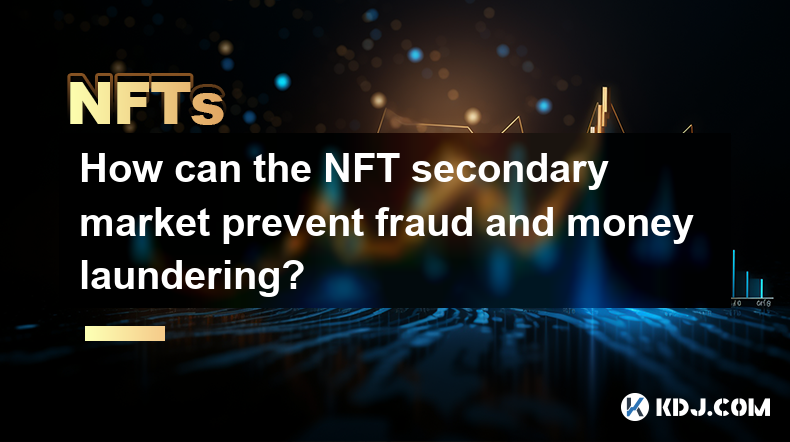
How can the NFT secondary market prevent fraud and money laundering?
Apr 03,2025 at 08:35am
The NFT secondary market has become a thriving hub for digital art and collectibles, but it also faces challenges in preventing fraud and money laundering. To tackle these issues, the market can implement various strategies and technologies to ensure a safer and more transparent trading environment. This article will explore how the NFT secondary market...
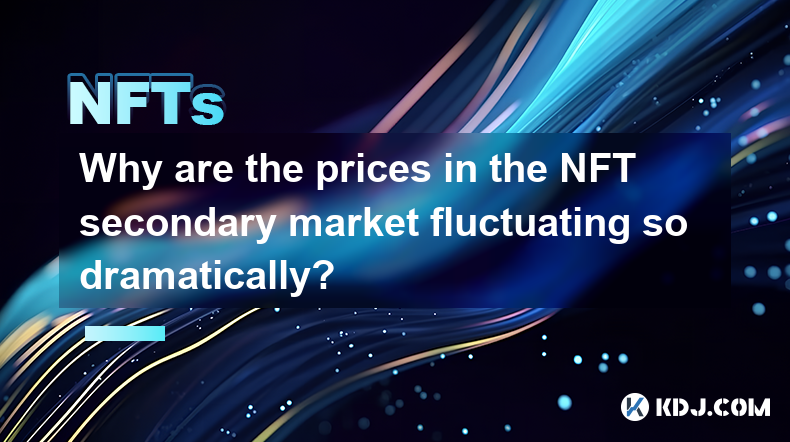
Why are the prices in the NFT secondary market fluctuating so dramatically?
Apr 03,2025 at 10:35pm
The NFT secondary market has been experiencing dramatic price fluctuations, leaving many in the cryptocurrency community puzzled and curious. To understand this phenomenon, it's essential to delve into the factors driving these price movements. From the impact of market sentiment and celebrity endorsements to the role of speculation and the unique natur...
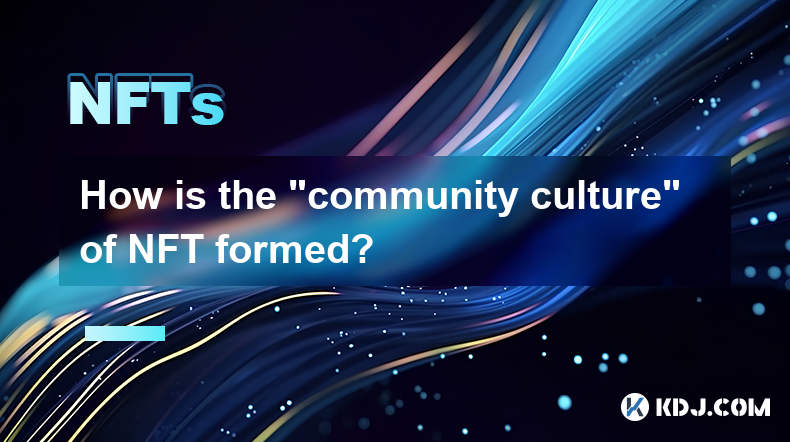
How is the “community culture” of NFT formed?
Apr 03,2025 at 11:07am
The formation of the 'community culture' within the NFT (Non-Fungible Token) space is a fascinating and multi-faceted process. It involves various elements such as shared interests, active engagement, and the creation of a sense of belonging among members. NFT communities often revolve around specific projects or artists, fostering a unique environment ...
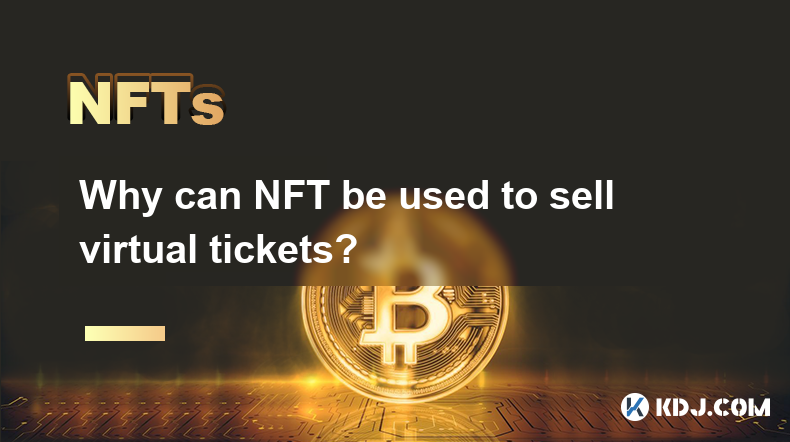
Why can NFT be used to sell virtual tickets?
Apr 03,2025 at 01:35pm
NFTs, or Non-Fungible Tokens, have revolutionized the way we think about digital ownership and value, particularly in the realm of virtual tickets. The primary reason NFTs can be used to sell virtual tickets is their unique nature. Unlike cryptocurrencies such as Bitcoin or Ethereum, which are fungible and can be exchanged on a one-to-one basis, NFTs ar...
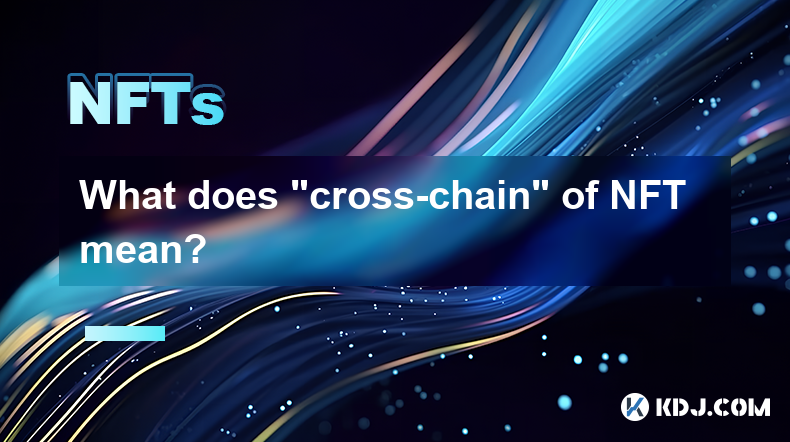
What does “cross-chain” of NFT mean?
Apr 03,2025 at 11:14pm
The term 'cross-chain' in the context of NFTs refers to the ability of non-fungible tokens to be transferred and utilized across different blockchain networks. This interoperability is crucial for expanding the utility and accessibility of NFTs, allowing them to be used in various ecosystems and applications beyond their original blockchain. Cross-chain...

How do smart contracts in the NFT secondary market work?
Apr 03,2025 at 07:14am
Smart contracts play a pivotal role in the NFT secondary market, facilitating seamless transactions and enforcing predefined rules. These self-executing contracts with the terms of the agreement directly written into code are stored on the blockchain. In the context of NFTs, smart contracts automate the buying, selling, and transferring of digital asset...

How can the NFT secondary market prevent fraud and money laundering?
Apr 03,2025 at 08:35am
The NFT secondary market has become a thriving hub for digital art and collectibles, but it also faces challenges in preventing fraud and money laundering. To tackle these issues, the market can implement various strategies and technologies to ensure a safer and more transparent trading environment. This article will explore how the NFT secondary market...

Why are the prices in the NFT secondary market fluctuating so dramatically?
Apr 03,2025 at 10:35pm
The NFT secondary market has been experiencing dramatic price fluctuations, leaving many in the cryptocurrency community puzzled and curious. To understand this phenomenon, it's essential to delve into the factors driving these price movements. From the impact of market sentiment and celebrity endorsements to the role of speculation and the unique natur...

How is the “community culture” of NFT formed?
Apr 03,2025 at 11:07am
The formation of the 'community culture' within the NFT (Non-Fungible Token) space is a fascinating and multi-faceted process. It involves various elements such as shared interests, active engagement, and the creation of a sense of belonging among members. NFT communities often revolve around specific projects or artists, fostering a unique environment ...

Why can NFT be used to sell virtual tickets?
Apr 03,2025 at 01:35pm
NFTs, or Non-Fungible Tokens, have revolutionized the way we think about digital ownership and value, particularly in the realm of virtual tickets. The primary reason NFTs can be used to sell virtual tickets is their unique nature. Unlike cryptocurrencies such as Bitcoin or Ethereum, which are fungible and can be exchanged on a one-to-one basis, NFTs ar...

What does “cross-chain” of NFT mean?
Apr 03,2025 at 11:14pm
The term 'cross-chain' in the context of NFTs refers to the ability of non-fungible tokens to be transferred and utilized across different blockchain networks. This interoperability is crucial for expanding the utility and accessibility of NFTs, allowing them to be used in various ecosystems and applications beyond their original blockchain. Cross-chain...
See all articles






















































































